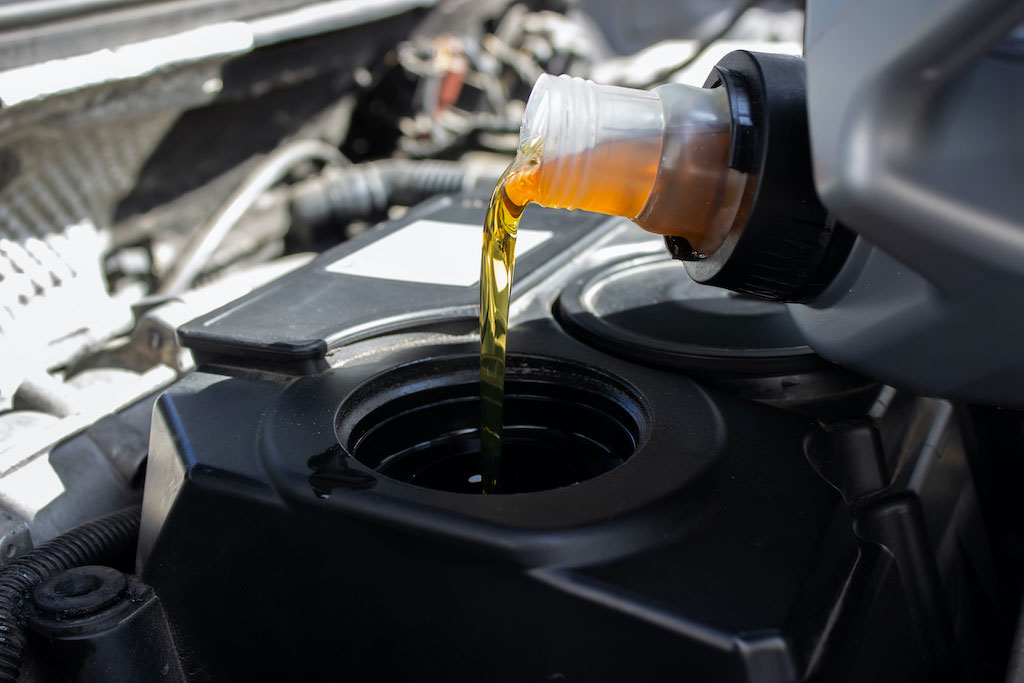What Is Automotive Gas Oil?
Automotive gas oil is a diesel fuel designed for vehicles and machinery requiring efficient and reliable combustion. Commonly used in trucks, buses, and industrial engines, this fuel provides high energy content and supports engine performance and longevity. IRANPETROEXPORT is proud to supply premium-quality automotive gas oil, helping businesses optimize fuel choices for better cost efficiency and operational success.
Automotive Gas Oil Specification
Automotive gas oil must meet strict specifications to ensure optimal engine performance and environmental compliance. These specifications cover various physical and chemical properties that define the quality and usability of the fuel. Adhering to these standards guarantees consistent efficiency and reliability in diverse operating conditions. In comparison with other fuels such as Export Blend Crude Oil REBCO, automotive gas oil is refined to meet more specific engine requirements, ensuring cleaner combustion and reduced emissions.
- Density at 15°C: 820–860 kg/m³
- Sulfur Content: Maximum 0.1% (depending on regional regulations)
- Cetane Number: Minimum 51
- Flash Point: Above 55°C
- Viscosity at 40°C: 2–4.5 mm²/s
- Pour Point: Typically between -10°C to -30°C
- Distillation Range: Initial boiling point around 180°C, with 95% recovered below 360°C
- Carbon Residue: Maximum 0.3%
- Water Content: Maximum 0.05%
Meeting these specifications is essential for ensuring fuel efficiency and engine longevity. Proper compliance helps reduce emissions and maintain consistent fuel quality, making it a reliable choice for modern engines.
Applications of Automotive Gas Oil in Modern Engines
1. Heavy-Duty Trucks and Freight Transportation
Automotive gas oil is widely used in heavy-duty trucks due to its high energy content and combustion efficiency. This fuel, including high-quality types like Virgin Fuel Oil D6, supports long-distance freight transportation by providing consistent power and reducing engine wear. Its reliability ensures trucks can operate effectively under various road conditions while maintaining fuel economy.
2. Public Transportation Buses
Public buses rely heavily on diesel fuel for daily operation. The fuel’s quality contributes to lower emissions and smoother engine performance, making it ideal for urban environments. This helps transportation authorities meet environmental regulations and improve passenger comfort.
3. Agricultural Machinery
In agricultural settings, automotive gas oil powers tractors, harvesters, and irrigation pumps. Its stable combustion properties allow machinery to perform efficiently during long working hours. Selecting high-quality gas oil enhances machinery lifespan and productivity on farms.

4. Construction and Mining Equipment
High-quality diesel fuel is essential for powering heavy construction and mining equipment. These machines require durable energy sources to maintain performance under harsh conditions. Using refined fuel ensures engines remain protected from deposits and corrosion, increasing operational reliability.
5. Marine Engines for Small Vessels
Small marine vessels often use automotive gas oil due to its availability and suitable energy density. The fuel provides the necessary power for navigation and onboard machinery, ensuring safe and efficient marine operations. Proper use helps reduce maintenance costs for marine engines.
Benefits of Using High-Quality Automotive Gas Oil
Selecting a premium-grade fuel such as Liquefied Petroleum Gas (LPG) contributes to long-term engine performance and operational stability. Each benefit listed below reflects how the right fuel choice can directly affect cost, reliability, and environmental compliance. Investing in better fuel like Liquefied Petroleum Gas (LPG) ensures better results, no matter the application.
- Improved Engine Efficiency
- Reduced Emissions
- Longer Engine Lifespan
- Better Cold-Start Performance
- Cleaner Combustion Process
- Lower Maintenance Costs
Improved Engine Efficiency
High-quality automotive gas oil improves fuel combustion, allowing engines to produce more power with less fuel. This leads to better mileage and overall system responsiveness. Vehicles experience smoother operation, particularly under heavy loads or frequent use. Better efficiency also means fewer carbon deposits over time. Ultimately, automotive gas oil helps optimize engine productivity in all driving conditions.
Reduced Emissions
Low-sulfur automotive gas oil contributes significantly to reducing harmful pollutants like NOx and particulate matter. Cleaner fuel combustion supports compliance with modern emission regulations. It also minimizes environmental harm in high-traffic or urban areas. By reducing black smoke and fuel waste, emissions are more controlled. This ensures cleaner air and greener engine performance.

Longer Engine Lifespan
Using automotive gas oil that meets high-quality standards protects key engine parts from wear and contamination. The fuel’s stability helps reduce friction, deposits, and internal corrosion. This means pistons, injectors, and filters stay in better shape longer. With fewer breakdowns, the total cost of ownership drops noticeably. High-quality fuel extends engine durability under demanding workloads.
Better Cold-Start Performance
Engines fueled by high-grade diesel start more quickly and smoothly in low temperatures. Automotive gas oil with an appropriate cetane number ensures faster ignition and less strain during start-up. This is crucial for regions with harsh winters or frequent early-morning operations. It reduces battery drain and starter wear, preserving system health. Cold-start reliability becomes far more dependable with the right fuel.
Cleaner Combustion Process
Automotive gas oil designed for modern engines burns more completely, minimizing soot and residue. This cleaner combustion keeps engine parts like valves and injectors free from buildup. The result is consistent power output and lower emission levels over time. A cleaner burn also improves turbocharger function and exhaust system lifespan. Overall, this fuel ensures internal cleanliness and reduced maintenance needs.
Lower Maintenance Costs
When engines use stable and well-refined automotive gas oil, the risk of fuel-related faults decreases. Systems remain unclogged and well-lubricated, leading to fewer repairs and parts replacements. Scheduled maintenance intervals can be extended without sacrificing performance. Fleet owners benefit from less downtime and better operational efficiency. This makes it a cost-effective choice for long-term use.
Comparison Between Automotive Gas Oil and Other Diesel Fuels
When comparing automotive gas oil to other diesel fuels, several key differences emerge in terms of quality, performance, and application. One of the primary distinctions lies in the sulfur content—this fuel typically has lower sulfur levels, which results in cleaner combustion and fewer emissions. In contrast, industrial diesel fuels may contain higher sulfur concentrations, making them less suitable for on-road vehicles with strict environmental standards.
Another notable difference is the cetane number, which affects ignition quality. This type of diesel usually has a higher cetane rating, ensuring smoother engine starts and more efficient performance. It is ideal for modern diesel engines, especially those equipped with advanced emission control systems like DPF or SCR.
Additionally, the refining process for this fuel is more controlled to meet strict transportation regulations, whereas marine or off-road diesel may prioritize volume over purity. These variations impact engine longevity, fuel economy, and maintenance costs.
In summary, while all diesel fuels serve similar purposes, automotive gas oil is engineered specifically for road vehicles and meets higher performance and environmental standards. Choosing the right fuel type depends on the engine's design, regulatory requirements, and operational conditions.

Tips for Proper Storage and Handling of Automotive Gas Oil
Proper storage and handling practices of Light Circle Oil LCO are essential to preserve fuel quality and prevent contamination. Whether in industrial, agricultural, or fleet settings, a consistent protocol ensures safety and efficiency. The following tips highlight the most important precautions for long-term usability and system protection when using Light Circle Oil LCO.
Key Tips:
- Store in clean, sealed, and approved fuel containers
- Avoid exposure to direct sunlight and high temperatures
- Keep tanks above ground and well-ventilated
- Use water separators and regularly check for moisture
- Label containers clearly to prevent cross-contamination
- Rotate stock to ensure first-in, first-out (FIFO) usage
Ensuring the proper storage of automotive gas oil helps maintain its chemical stability and combustion quality over time. Additionally, safe handling reduces the risk of spills, corrosion, and microbial growth. Following industry best practices will keep your automotive gas oil effective, reliable, and compliant with safety standards.
Environmental Impact of Automotive Gas Oil
The environmental impact of automotive fuels is a major concern in today’s energy landscape. This type of fuel, while more refined than traditional diesel, still contributes to emissions such as NOx and particulate matter. However, advancements in fuel formulation and engine technology have reduced its ecological footprint. Using low-sulfur variants and proper combustion systems can minimize harmful outputs. Continued improvements in fuel quality support cleaner transportation solutions.
Why IranPetroExport Is Your Trusted Partner for Premium Automotive Gas Oil Supply
When it comes to securing a reliable source of high-quality automotive fuels, working with an experienced and dependable supplier is critical. IranPetroExport has established itself as a trusted leader in the energy export sector, offering consistent, on-spec deliveries backed by expert logistics. With a strong focus on quality control and international standards, the company ensures that every shipment of automotive gas oil meets the demands of modern engines and regulatory frameworks. Clients around the globe rely on IranPetroExport not just for fuel—but for long-term partnership, transparency, and technical support.
conclusion
Choosing high-quality automotive gas oil, plays a vital role in optimizing engine performance and reducing environmental impact. By understanding its specifications and applications, users can make informed decisions for better fuel efficiency and reliability. Investing in superior fuel like CST Fuel Oil ultimately leads to cost savings and enhanced operational success. Compared to broader energy sources like East Siberia Pacific Ocean ESPO Crude Oil, automotive gas oil is tailored for precise engine demands, making it a practical choice for industries requiring dependable and clean fuel.
